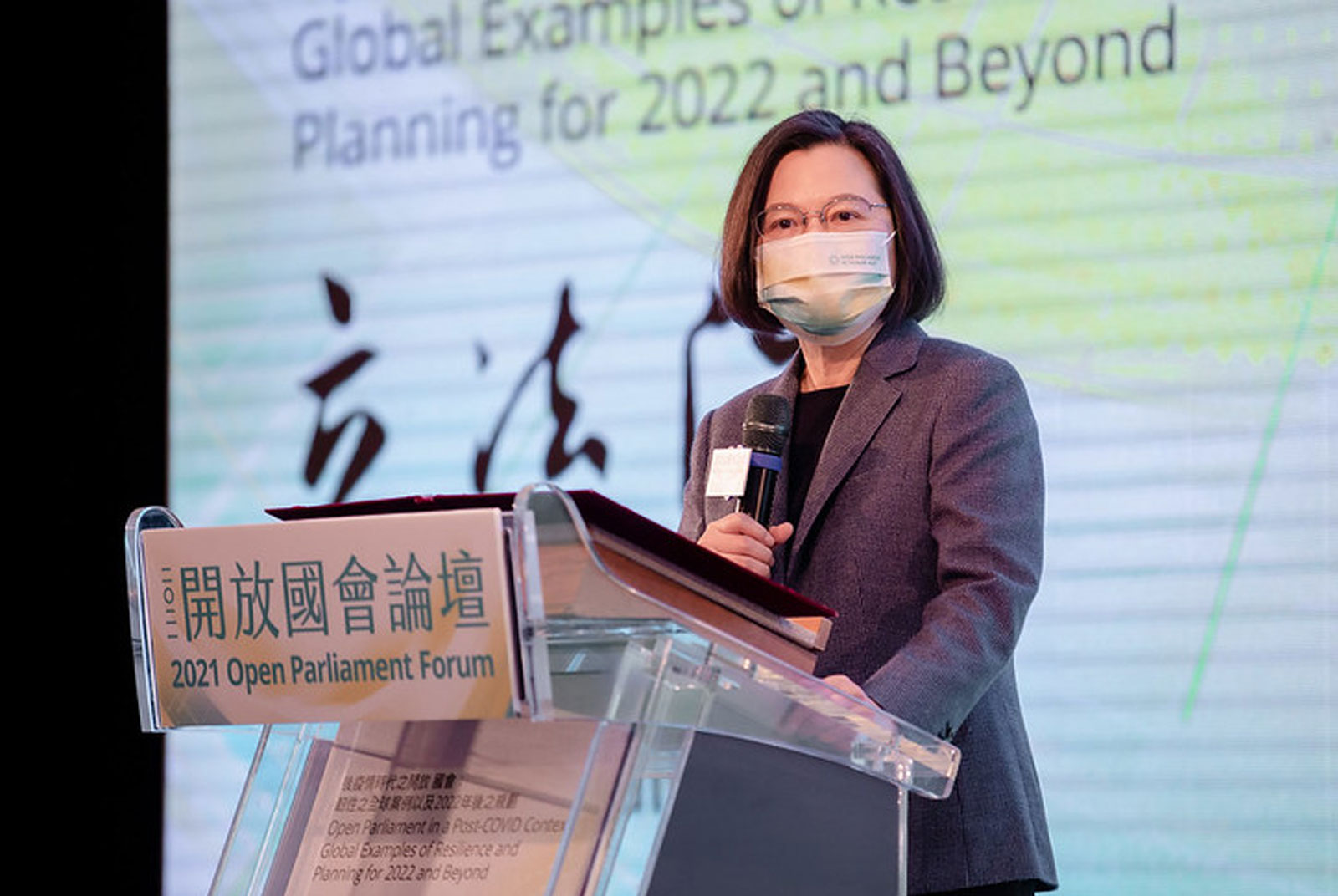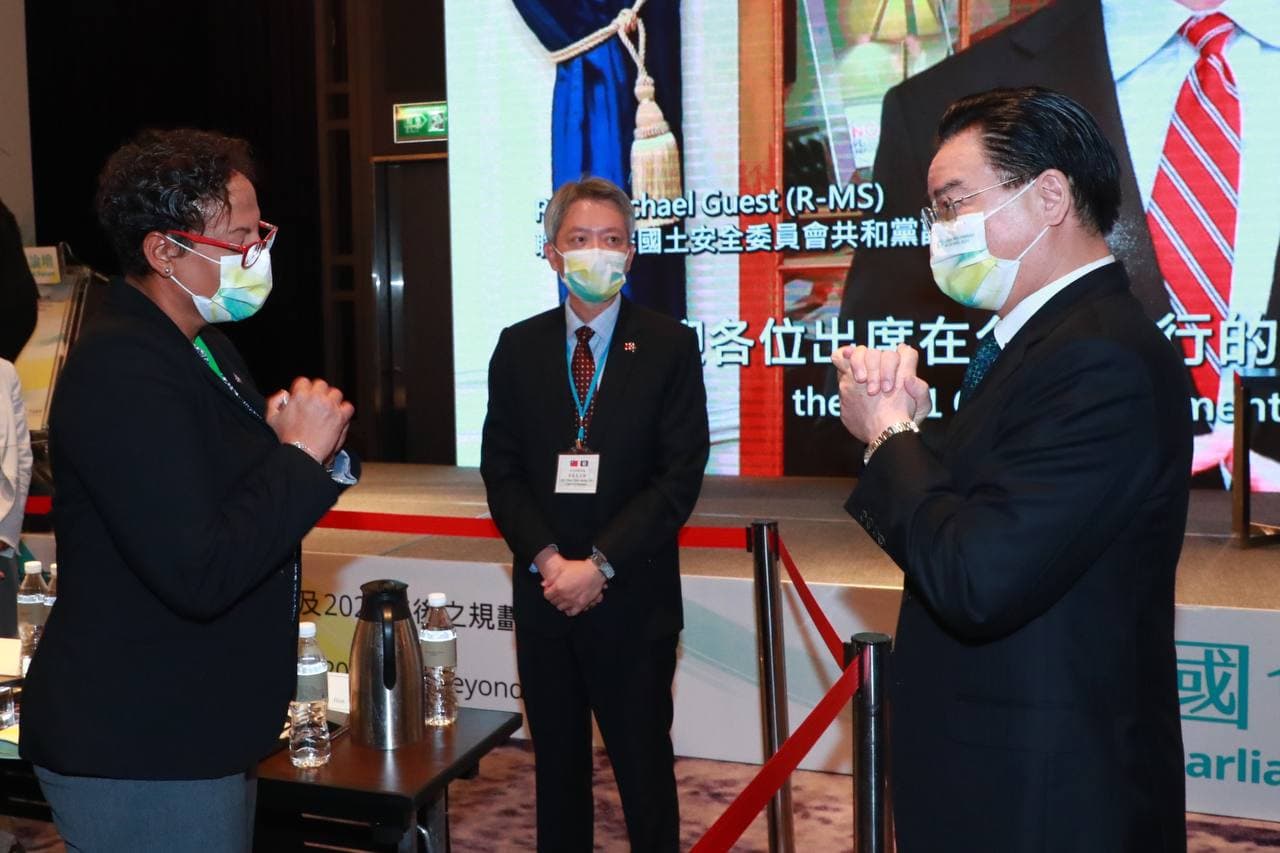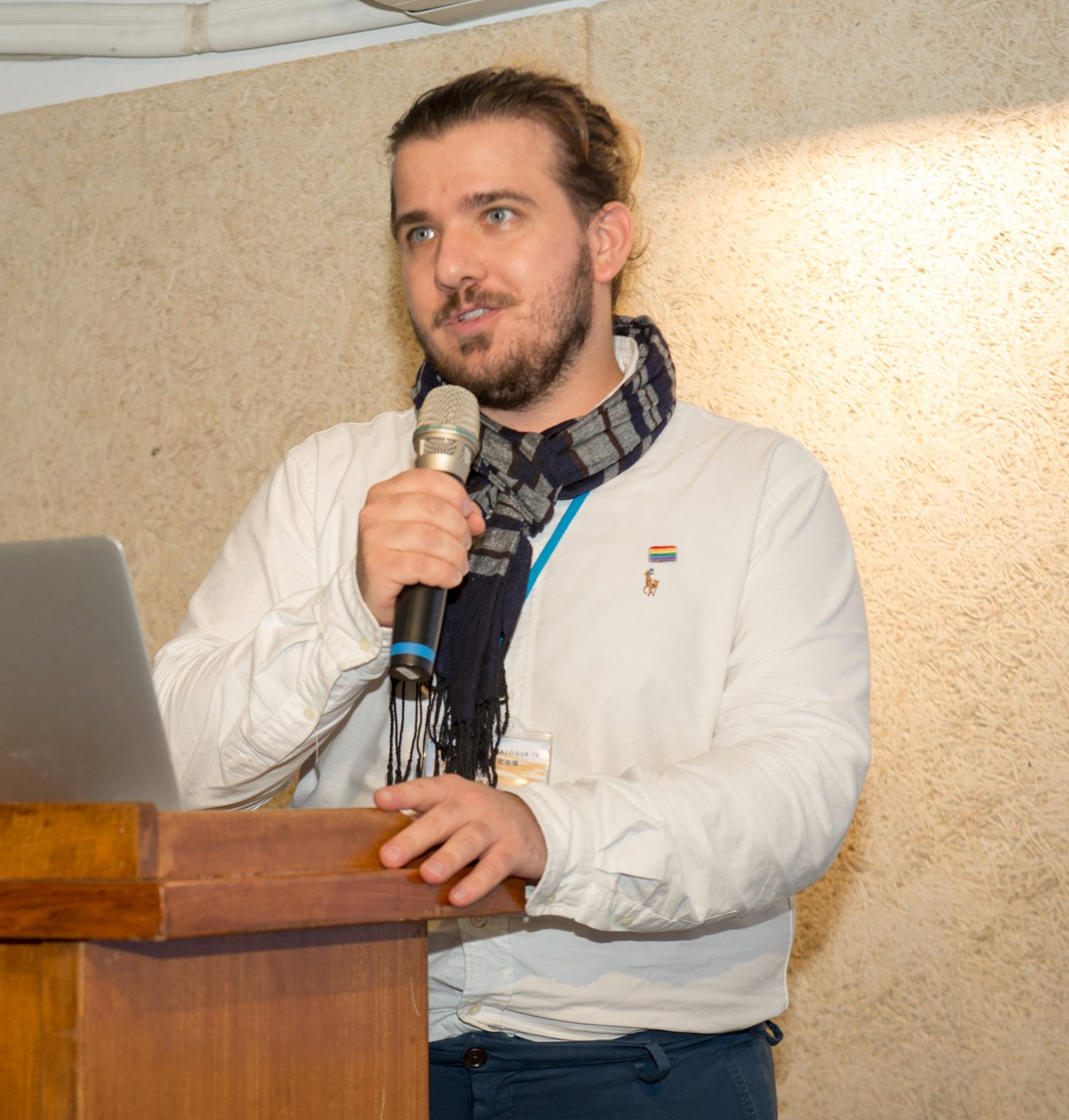Legislative diplomacy: A key to Taiwan’s people-centric engagement with the world

Source:Office of the President R.O.C.
While a democratic alliance supporting Taiwan is expected to grow, Taipei must continue to prioritize its people-centric engagement with the world. Legislative diplomacy plays a key role.
Views
Legislative diplomacy: A key to Taiwan’s people-centric engagement with the world
By Marcin Jerzewski/Zsuzsa Anna Ferenczyweb only
With its international status deemed a “geopolitical absurdity,” Taiwan’s involvement in international organizations, including the United Nations system, as well the country’s ability to engage in government-to-government exchanges has been seriously constrained. Viewing the Taiwan issue as “non-negotiable,” the Chinese leadership has made sure Taiwan remains “sensitive” in its dealings with governments around the world.
Nevertheless, since the abrogation of official relations with most countries, Taiwan has been able to contrive idiosyncratic and effective methods for engagement with its international partners, which prioritize the deepening of people-to-people ties. Legislative diplomacy thus constitutes an important tool for people-centric engagement between Taiwan and the world.
The 2021 Open Parliament Forum, organized by Taiwan’s Legislative Yuan, the Ministry of Foreign Affairs, Taiwan-Asia Exchange Foundation, and U.S.-headquartered nonprofit National Democratic Institute, serves as a clear example of Taiwan’s successful engagement of international lawmakers in strengthening the country’s reputation overseas. As the host of the event, Taiwan provided a platform for timely exchanges related to parliamentary openness, horizontal accountability, and combating disinformation, while positioning itself as simultaneously a mentor and a student; willing and ready to share its expertise and learn from best practices. This is important for fostering more horizontal relationships with countries by whom Taiwan wants to be perceived as a like-minded and reliable partner.
 (Source: Ministry of Foreign Affairs )
(Source: Ministry of Foreign Affairs )
The Legislative Yuan, Taiwan’s unicameral parliament, has 28 parliamentary groups focusing on bilateral and multilateral cooperation with elected officials around the globe. Together with the Foreign and National Defense Committee, they constitute the institutional backbone of parliamentary diplomacy. In the specific context of Taiwan, people-centric legislative diplomacy enables a “more obscure strategy” of semi-official engagements which allows the country to avoid immediately triggering CCP’s backlash and resistance. More importantly, it simultaneously helps increase Taiwan’s international exposure not only among political elites, but also the general public, bringing a more sustainable approach.
“Meetings with legislators from around the world allow us to, on the one hand, unite across party lines in the quest to expand Taiwan’s international space, and, on the other hand, build relations among individuals, as each of us has their own style and issues they care about,” Chen Ming-Wen (陳明文), Member of the Legislative Yuan explained in a recent interview with the authors.
“These cordial exchanges and seemingly small gestures, such as sampling Alishan tea together, lead to friendship and deepen our mutual understanding, as our guests bring the story of Taiwan back to their constituencies.”
Legislative diplomacy also enables consolidating democracies to evaluate their progress in a comparative perspective. To this end, the presence of Mexican Senator Nadia Navarro Acevedo of the National Action Party at the Open Parliament Forum was highly symbolic, given the parallels in political development of Taiwan and Mexico over the past three decades. The March and July 2000 triumphs of Chen Shui-bian (陳水扁) in Taiwan and Vicente Fox in Mexico, respectively, marked astonishing takeovers of the office of the presidency by opposition candidates in long-term authoritarian, one-party-dominant regimes.
In both Mexico and Taiwan, the former monopolistic authoritarian parties—the Institutional Revolutionary Party (PRI) and the Kuomintang (KMT)—retained significant strengths on the respective political scenes, stalling the process of democratic consolidation. Therefore, the presence of a Mexican voice at the Taipei-based event provided a powerful stimulus for deliberations about the role of historical legacies and constructive opposition in the respective party systems of both countries, following two transfers of power.
Yet, the importance of legislative diplomacy for Taiwan becomes most conspicuous as we analyze the newfound openness in the country’s relations with Europe. Out of all EU institutions, the European Parliament, with its directly elected lawmakers across the 27 member states, has been at the forefront of the quest to deepen and broaden Taiwan-EU relations in light of the expanding normative gap between China and Brussels.
As such, with a majority of 580 to 26 votes in favor, in its first ever stand-alone report on Taiwan, Members of the European Parliament (MEPs) called for the pursuit of a comprehensive and enhanced partnership with Taiwan under the guidance of the EU’s One China Policy. They urged increased bilateral economic, scientific, cultural, political, and people-to-people exchanges, and stressed the need to consider learning from Taiwan’s experience of fighting disinformation.
In the same spirit, a delegation of lawmakers of the EP’s Special Committee to counter foreign interference in all democratic processes in the EU (INGE) visited Taipei to explore ways to reinforce cooperation in countering disinformation. Given that both sides face increasing disinformation and hybrid threats from authoritarian governments, partnering up to reinforce their cyber resilience and together shape cyber norms in the process, would benefit both sides. MEPs should now encourage the Commission to reinforce its exchange with Taiwan on cyber diplomacy within the context of, for example, their Dialogue on Digital Economy.
These undertakings by the EP set a precedent for further consolidation of bilateral cooperation through more regular and more high-level exchanges between the two sides. It will be crucial that MEPs now build on this momentum and seek to increase the support for Taiwan within the EP. While the current positive momentum is arguably unprecedented, the key role of the legislative branch, which represents the citizens rather than the state itself, reflects a longer trend of more explicitly pro-Taiwan stance among elected officials in Europe.
During the Open Parliament Forum, the presence of 10 legislators from the Baltic states and an MEP also attracted considerable attention among Taiwanese politicians and pundits. In line with the European legislators’ repeated calls for further international support to Taiwan, Spanish MEP Hermann Tertsch urged the return of Taiwan to international organizations. He argued that Taiwan has to have a just role in the global community. Tertsch also underscored the commitment of the EU in working with Taiwan to combat misinformation, which further demonstrates that the visit of the INGE committee to Taipei was more than merely a one-off affair. Rather, it ought to be viewed as a part of sustained efforts by the EP to deepen cooperation with Taiwan in strategic areas of shared interest, such as disinformation.
Multilateral legislative diplomacy with Taiwan also invites opportunities for cross-national coordination of strategies for mutual engagement. In the context of Taiwan-EU relations, this dynamic materialized during the recent delegation of lawmakers from the Baltic states. “It will probably take time to stand in one line with governments that flirt with authoritarianism themselves. But generally speaking, the support for democracy in Europe is the strongest in a decade,” said Marius Matijošaitis, Member of the Seimas, representing the Lithuanian Freedom Party. “The talks with Latvian and Estonian friends are ongoing, often on a variety of institutional level.”
For the future, given the uncertainties that the new geopolitical reality entails, it will be crucial that Taiwan builds on the emerging dynamics in multilateral legislative diplomacy. While a democratic alliance in its support is expected to keep growing, largely fueled by Beijing’s increasingly aggressive authoritarianism, Taipei must continue to prioritize its people-centric engagement with the world. Legislative diplomacy can, and indeed should, remain a key instrument in this endeavor.
(This piece reflects the author's opinion, and does not represent the opinion of CommonWealth Magazine.)
About the author:

Marcin Jerzewski is a Research Fellow at Taiwan NextGen Foundation. Marcin earned his Bachelor of Arts (Honors) in Political Science and Chinese Studies at the University of Richmond, and was an MOE Taiwan Scholar in the International Master’s Program in International Studies at the National Chengchi University. He tweets @yehaoqin.

Zsuzsa Anna Ferenczy is a Ministry of Science and Technology Postdoctoral Fellow in Taiwan, Non-Resident Fellow at Taiwan NextGen Foundation, Head of Associates Network at 9Dashline, and former political advisor in the European Parliament (2008-2020). She tweets @zsuzsettte.
Have you read?
♦ Leveraging Taiwan’s techplomacy in Europe
♦ How could Japan’s Taiwan policy under Kishida go?
♦ How can the KMT rebuild its US ties after a 13-year absence?
Uploaded by Penny Chiang






